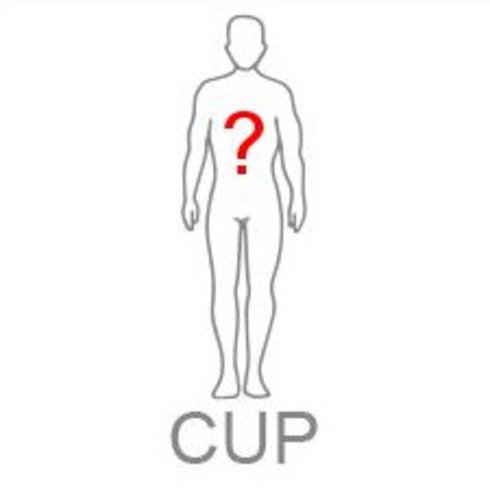CP CUP – Cancer of Unknown Primary
Summary
Cancer of unknown primary (CUP) constitutes clinical situations where only metastases can be found but the respective primary tumor remains obscure. CUP syndrome is associated with a grave prognosis as in the majority of cases only palliative, unspecific treatment is available. For this reason, our CUP program focuses on innovative clinical trials based on treatment target identification by genome sequencing and primary site detection by gene expression and methylation profiling. A large randomized phase II trial comparing platinum-based standard chemotherapy with and without the anti-EGFR-antibody cetuximab in 150 patients has just been finished. A large, international trial comparing molecularly-guided therapy versus standard chemotherapy in 790 patients with CUP syndrome will start soon. In this study, molecularly-guided therapies will include seven targeted cancer therapy regimens and two cancer immunotherapy regimens, and will be chosen based on each patient’s comprehensive genomic profile. Scientifically, we focus on the genomic characterization and classification of CUP as well as on the identification of novel biomarkers of response to immunotherapies.
Coordinators
Prof. Dr. med. Alwin Krämer
Clinical Cooperation Unit Molecular Hematology/Oncology; Dept. of Internal Medicine V, Heidelberg University Hospital/German Cancer Research Center
PD Dr. med. Tilmann Bochtler
Clinical Cooperation Unit Molecular Hematology/Oncology; Dept. of Internal Medicine V, Heidelberg University Hospital/German Cancer Research Center
Prof. Dr. med. Carsten Müller-Tidow
Department of Internal Medicine V: Hematology, Oncology and Rheumatology, Heidelberg University Hospital
Clinical Aims
- Analysis of the results of a randomized phase II trial comparing the efficacy of carboplatin/taxol versus carboplatin/taxol plus cetuximab in patients with untreated disseminated adeno- and undifferentiated CUP syndrome
- Initiation of an international, randomized, multi-center study comparing the efficacy and safety of targeted therapy or cancer immunotherapy guided by genomic profiling versus platinum-based chemotherapy in patients with newly diagnosed CUP syndrome
Scientific Aims
- Characterization and classification of mutational profiles in a large cohort of patients with CUP syndrome
- Characterization of clonal heterogeneity, genomic evolution and minimal residual disease by analysis of liquid biopsies in patients with CUP syndrome
- Primary site identification by methylation profiling in CUP syndrome
- Characterization of novel biomarkers including chromosomal instability and tumor mutational burden to predict response to immunotherapy in patients with CUP syndrome
Clinical Activities
State of the art treatment including clinical trials and target identification by comprehensive genome profiling.
- Execution of a large randomized, multicenter investigator-initiated clinical trial comparing standard chemotherapy with and without the anti-EGFR-antibody cetuximab in patients with newly diagnosed CUP syndrome within the framework of the German CUP study group of the AIO (Arbeitsgemeinschaft Internistische Onkologie).
- Initiation and lead of an international randomized phase II trial comparing molecularly-guided therapy versus standard platinum-containing chemotherapy in 790 patients with newly diagnosed, poor-risk CUP syndrome.
- Establishment of a CUP Cancer Program including a large, multidisciplinary outpatient department seeing 130 patients with newly diagnosed CUP syndrome per year.
- Establishment of routine comprehensive genomic profiling for all patients with CUP syndrome in order to allow for identification of targetable mutations.
Preclinical Activities
- Routine comprehensive genomic sequencing of CUP tumors and liquid biopsies for identification of targetable mutations
- Setup of a large CUP tumor and peripheral blood/liquid biopsy biobank
- Comprehensive genomic sequencing of a large set of CUP tumors leading to the identification of targetable mutations which will now serve as targets in a large randomized clinical trial (Löffler H, Pfarr N, Kriegsmann M, Endris V, Hielscher T, Lohneis P, Folprecht G, Stenzinger A, Dietel M, Weichert W, Krämer A: Molecular driver alterations and their clinical relevance in cancer of unknown primary site. Oncotarget 7: 44322-44329, 2016)
- Identification of environmental and genetic risk factors leading to the development of CUP syndrome (Kaaks R, Sookthai D, Hemminki K, Krämer A, Riboli E, Canzian F: Risk factors for cancers of unknown primary site (CUP) - results from the prospective EPIC cohort. Int J Cancer 135: 2475-2481, 2014; Hemminki K, Chen B, Kumar A, Melander O, Manjer J, Hallmans G, Löffler H, Krämer A, Försti A: Germline genetics of cancer of unknown primary (CUP) and its specific subtypes. Oncotarget 7: 22140-22149, 2016)










